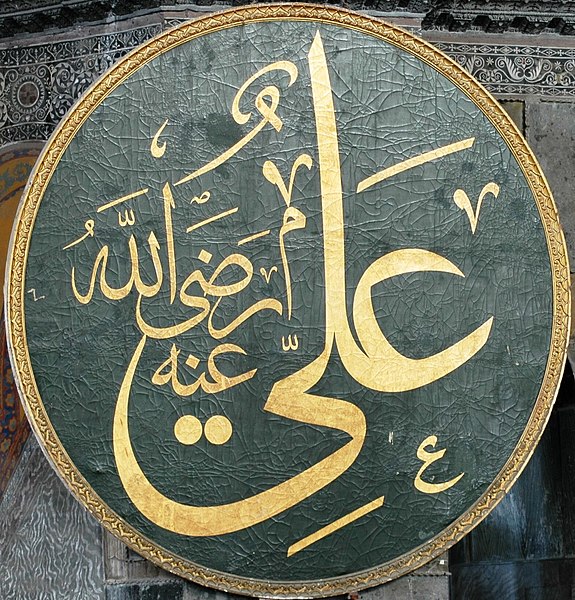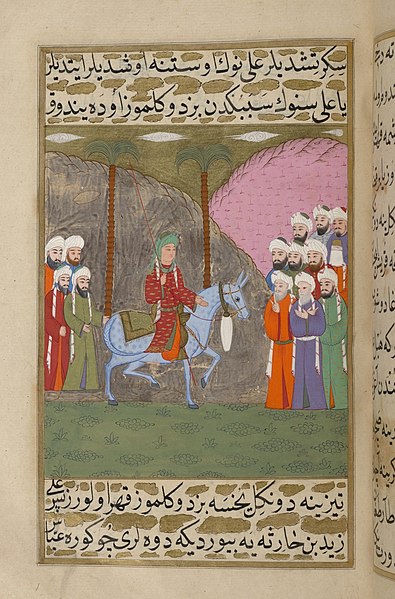Umayyad tradition of cursing Ali
Cursing Ali was a state policy introduced by Mu'awiya ibn Abi Sufyan, the first Umayyad caliph, which mandated publicly cursing Ali ibn Abi Talib, the cousin and son-in-law of the Islamic prophet Muhammad, who was also the fourth Rashidun caliph and the first Shia Imam. Mu'awiya was the incumbent governor of Syria who had rebelled against Ali ostensibly to avenge the previous caliph Uthman, who was in turn assassinated by some provincial dissidents angered by his policies. Ali and Mu'awiya fought the inconclusive Battle of Siffin in 657 CE and remained enemies until the assassination of Ali in 661, which paved the way for the caliphate of Mu'awiya in the same year. The public cursing of Ali continued after Mu'awiya and was finally abandoned some sixty years later by the pious Umar II. The policy likely served as a propaganda measure, and also helped provoke, identify, and then crush the supporters of Ali, whom the Umayyads considered a threat.
Shrine of Hujr ibn Adi in Syria
Ali ibn Abi Talib was the cousin and son-in-law of the Islamic prophet Muhammad, and was the fourth Rashidun caliph who ruled from 656 to 661, as well as the first Shia imam. Born to Abu Talib ibn Abd al-Muttalib and Fatima bint Asad, a young Ali was raised by his elder cousin Muhammad and was among the first to accept his teachings.
Calligraphic panel bearing Ali's name at the Hagia Sophia
Gouache illustration of Ali (centre) and his sons, Hasan and Husayn, 1838, by an unknown painter
Ali in an illustrated copy of the Turkish epic Siyer-i nebi
Muhammad and Ali, a folio from the fifteenth century Iranian epic Khavarannama





